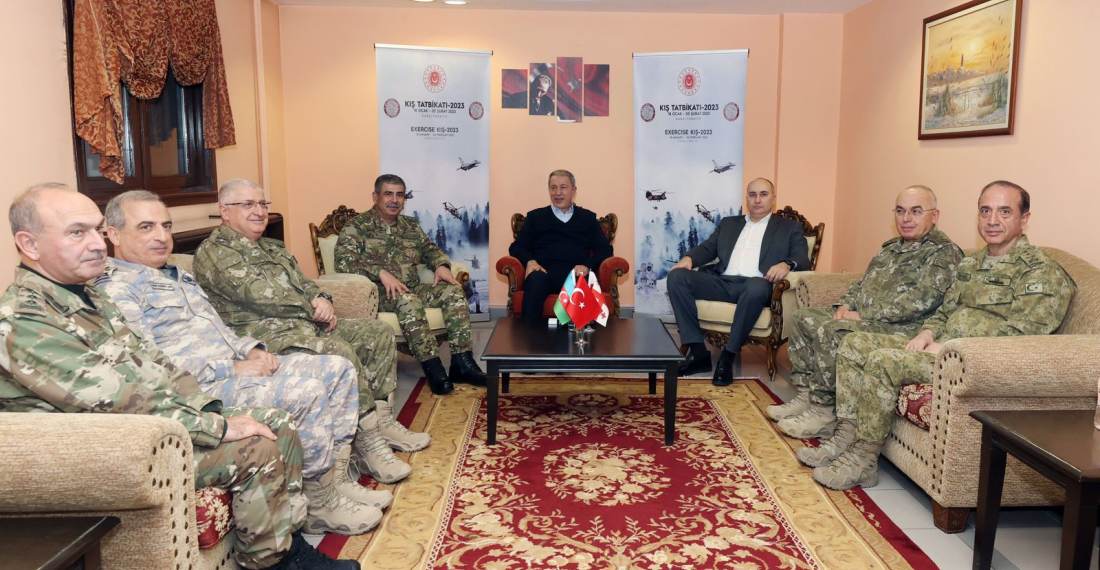Georgian Defence Minister Juansher Burchuladze and his Azerbaijani and Turkish colleagues, Colonel General Zakir Hasanov and General Hulusi Akar, met on Thursday (2 February) to discuss cooperation in regional development and defence at the closure of multinational military exercises in Kars, Turkiye.
"Attention was drawn to the importance of joint military exercises and training, which further brings the militaries of the three countries closer together and strengthens mutual compatibility. The importance of the format of tripartite cooperation in the field of defense, which serves security and stability in the region, was noted," said the Georgian Ministry of Defence.
The exercises took place to ensure cooperation and coordination in joint operations, test the performance of hardware and improve training levels of troops in quartering, deployment and food servicing in winter conditions, the Ministry added.
The multinational drills started on 18 January and involved forces from 17 countries including Georgia, Turkiye, Azerbaijan, Germany, the United Kingdom and Italy. The drills are set to close today.






